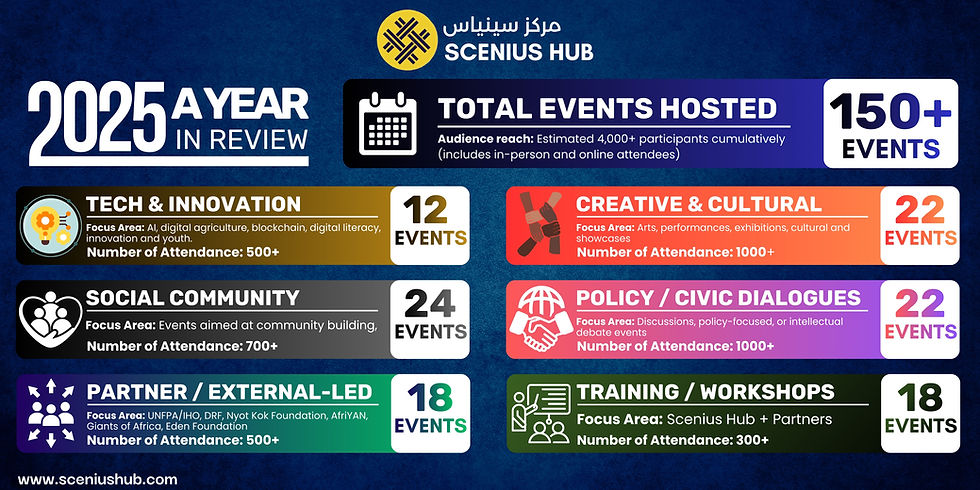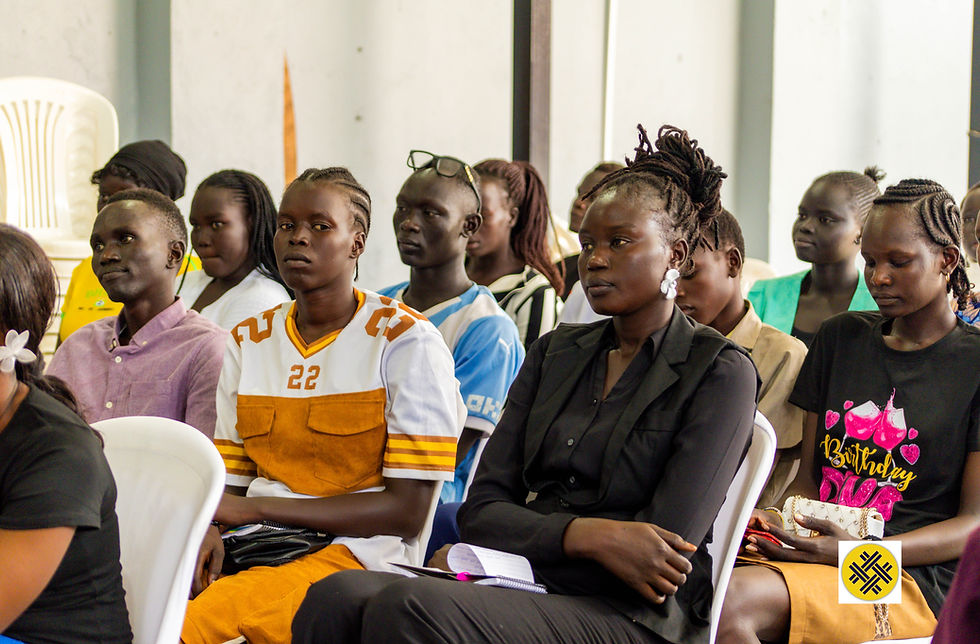Brideprice, Gender, and Conflict in South Sudan.
- Arok James Isaiah

- Jun 21, 2024
- 3 min read
On the 20th of this month, UNFPA-South Sudan, PeaceRep Research Programme, and Coventry University hosted a collaborative panel discussion themed “Brideprice, Gender, and Conflict in South Sudan.” This gathering focused on the findings from the study "Bring Enough Cows to Marry," produced by Coventry University under the PeaceRep programme, and aimed to unpack the complexities of bride price and its far-reaching impacts on women and girls in the country.

The report's finding offers a comprehensive assessment of brideprice in South Sudan, using data from fifteen counties and qualitative insights from four states to examine its economic, social, and political implications and its impact on gender relations and violent conflict. The report further states that, Unlike a financial transaction, brideprice symbolizes social approval and links families across generations. Its value and form vary by region, reflecting diverse cultural norms and affecting the status of both men and women. In South Sudan Payments often involve substantial cattle or cash, with higher amounts in pastoralist areas. The report asserts that the practice of Brideprice reinforces gender norms and is linked to polygyny, early marriages, and widow inheritance. further setting that Brideprice is associated with violence against women, contributing to abuse and financial stress.
The report also reveals that Bridprice pressures men to meet societal expectations, sometimes resulting in armed violence and cattle raiding, exacerbating regional conflict.
The report recommends that Legal reforms be holistic and socially sustainable, with pragmatic regulations like brideprice caps potentially offering solutions. Long-term reforms should balance tradition with human rights protection, promoting marriage as an individual union rather than a family arrangement. Read full report here
The event was attended by several experts and partners from baris organizations.
Kobi Bentley, Humanitarian & Development Director at the British Embassy in Juba, set the stage for the discussion by stating, “Bride price is at the heart of the varied challenges facing women and girls in South Sudan." Underscoring the urgency of addressing this deeply rooted practice, which influences various aspects of women's lives and societal structures in South Sudan.

Hon. Philip Pia, Undersecretary of the Ministry of Peace Building, highlighted a critical transformation in the practice of marriage exchanges, noting, “The commercialization of marriage has metamorphosed from our traditional practice and has become a trigger for violence and disruptions of peace." This observation pointed to a significant departure from traditional values, with the commercialization of bride price contributing to increased conflict and societal disruption.

Dr. Jan Pospisil, head of the research team from Coventry University, presented key findings from a comprehensive survey on community perceptions of bride price. His research provided valuable insights into how this practice is viewed across different regions and communities in South Sudan, revealing the often contentious nature of bride price in contemporary society.
Moderated by UNFPA Resident Representative Dr. Ademola Olajide, the panel discussion brought together diverse voices, each offering unique perspectives on the issue.

Aluel Atem, a gender activist and civil society member, emphasized the cultural implications of bride price, stating, “We as girls are socialized to believe that our worth is tied to how much has been paid for us. Therefore, when you say the word 'free,' it may be interpreted
as if I don’t have worth culturally.” Her insights highlighted the deep-seated beliefs that perpetuate the practice and its impact on women's self-worth.
Data Gordon, an advocate for gender equality at Men for Women, challenged the transactional nature of bride price, arguing, “If we take dowry as an appreciation, then it cannot be refunded. Even if there is a divorce, no refund can be made. That means we do not need to commercialize bride price.” Gordon’s perspective called for a shift towards viewing dowry as a form of appreciation rather than a commercial transaction.
Chief Malok Dhuol Akek, a representative of the Traditional Council, defended the cultural roots of the practice, asserting, “Bride price does not exist in South Sudan. The term bride price is a western concept. What we have is marriage dowry. The main reason people pay bride price is to create social co-existence among communities and social relations among families.” His remarks stressed the intended communal benefits of the practice, contrasting with its contemporary “commercialization”.
Josephine Adhieu, a survivor of early child marriage and now a lawyer, shared her emotional personal story, saying, “I got married at the age of eight to a man who was seven times my age, and the trauma I underwent was unspeakable, especially at that age.” Her testimony highlighted the severe personal costs of early and forced marriages.
The event concluded with a consensus on the need for comprehensive and culturally sensitive policy interventions. Kobi Bentley reiterated the urgency of addressing the issue, while Hon. Philip Pia called for a return to traditional practices that facilitate peace rather than conflict.
Written by Arok James Isiah
Editd by Nelson Kwaje




Comments